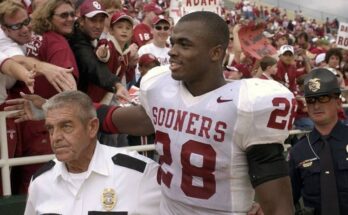Auburn Athletic Director John Cohen Outlines Pivotal Blueprint for Hugh Freeze’s Success in Crucial 2025 Season as Pressure Mounts on Tigers Football Program
The 2025 college football season may still be months away, but inside the walls of Auburn University’s athletics offices, the urgency is already palpable. With expectations steadily building and the pressure to restore the football program to national prominence intensifying, Athletic Director John Cohen has stepped forward with a clear and focused message. He isn’t mincing words. He knows what’s at stake. For head coach Hugh Freeze and the Auburn Tigers, the time to rise is now — and Cohen has outlined three core principles he believes are essential to achieving success in the pivotal year ahead.
Cohen, a seasoned administrator and former SEC baseball coach, has made it clear that he didn’t hire Hugh Freeze to merely stabilize Auburn’s football program — he hired him to elevate it. Freeze’s first two seasons were always expected to be about laying the foundation. Evaluating talent. Recruiting at a high level. Building trust. Instilling culture. But the 2025 season? That’s different. That’s the year where foundation must turn into form. Promise must evolve into production. And all the noise surrounding Auburn’s potential must finally be met with tangible results.
Speaking candidly during a recent media session, Cohen delivered what could be considered both a blueprint and a challenge. His message to Freeze wasn’t about micromanaging strategy or dictating play calls. It was about setting a tone, staying disciplined to the long-term vision, and executing in the areas that separate good programs from great ones. He pointed to three core tenets that, in his view, will determine whether 2025 becomes the year Auburn makes its long-awaited return to SEC elite status — or another chapter in a rebuilding saga that has grown long in the tooth for fans, boosters, and alumni alike.
The first key Cohen emphasized was roster development and retention. In today’s college football environment, with the transfer portal and NIL dynamics creating unprecedented roster turnover, maintaining continuity is more difficult than ever — and more important. Cohen stressed that for Freeze to take the next step, the program must not only recruit well but also keep its core talent year over year. That means building a culture players want to be part of, ensuring that young athletes see a developmental path at Auburn that’s better than what any other school or portal opportunity could offer.
Freeze has made strides in recruiting, landing top-15 classes and showing an ability to flip players late in the cycle. But Cohen’s comments underscored the reality that recruiting victories mean little if those same players leave after one season. Retention isn’t just about NIL deals — it’s about culture, connection, and a staff that develops trust with its athletes. It’s also about having a player-led locker room, where leadership from within keeps younger players aligned and accountable. If Freeze and his staff can create that kind of environment, Auburn won’t just collect talent — it will build the kind of continuity needed to win big games in November and compete for SEC titles in December.
Cohen’s second pillar for Freeze was discipline in identity — an insistence that Auburn must know what kind of football team it is and remain committed to that identity even in the face of adversity. One of the defining issues of Auburn’s post-Gus Malzahn era has been inconsistency. Some years they’ve leaned on the run. Others, they’ve tried to air it out. Defensive philosophies have shifted. Quarterback play has yo-yoed. And through it all, the Tigers have lacked a consistent, recognizable brand of football. Cohen believes that must change — and Freeze is the man to make it happen.
Freeze’s offensive track record is well-documented. He’s innovative, aggressive, and capable of putting together dynamic schemes that challenge opposing defenses. But in the SEC, especially against powerhouses like Alabama, Georgia, and LSU, innovation must be married with toughness. Identity, Cohen believes, isn’t just about X’s and O’s — it’s about setting a tone, playing to your strengths, and developing a mindset that doesn’t waver when facing hostile environments or game-defining moments. Freeze must imprint his philosophy onto this program so deeply that every player, coach, and fan knows exactly what Auburn football is supposed to look like — week in and week out.
The third and perhaps most pointed element of Cohen’s blueprint was the need for results in rivalry games. Auburn’s tradition is rooted in fierce competition — especially with Alabama and Georgia. And while fans understand the cyclical nature of college football, patience always wears thin when rivals dominate year after year. Cohen didn’t sugarcoat it. He knows Auburn fans measure their program not just by win totals, but by how they fare in the Iron Bowl and the Deep South’s Oldest Rivalry. For Freeze to cement himself as the long-term leader of this program, he has to deliver results in those matchups.
That doesn’t mean winning every rivalry game, but it does mean being consistently competitive. Too often in recent years, Auburn has looked outmatched against its top rivals — physically and schematically. Cohen made it clear that closing that gap is essential. It’s not just about pride. It’s about recruiting battles, national perception, and internal momentum. If Freeze can find a way to beat Alabama or Georgia — or both — in 2025, the entire narrative around Auburn football will shift. Recruits will take notice. Boosters will double down. And the belief that Auburn is building something special will no longer be theoretical — it will be rooted in scoreboard reality.
Cohen also made subtle but important references to staff alignment and program stability, two elements that often fly under the radar but matter deeply in high-stakes college football. He praised Freeze’s ability to build a strong support system — from coordinators to strength staff to analysts — and emphasized how critical it is to maintain cohesion across the football operation. Internal drama or turnover at key positions can derail momentum quickly, especially in a competitive league like the SEC. Cohen’s challenge to Freeze was to not just build a staff — but to keep it intact, empowered, and aligned.
All of this, of course, comes against the backdrop of massive change in college athletics. The SEC is expanding. The College Football Playoff is growing. NIL collectives are now part of every program’s infrastructure. Cohen’s comments weren’t simply about 2025 — they were about positioning Auburn for success in the new era of college football. He wants Freeze to win now, yes. But he also wants Auburn to be sustainable, competitive, and nationally relevant for the long haul.
There’s no denying that Freeze has brought a different energy to the program. He’s an experienced coach with a proven ability to win. His recruiting chops are strong. His offensive mind is sharp. He’s connected with fans and embraced the expectations of the Auburn job. But Cohen’s comments served as a reminder that good intentions and exciting potential are no longer enough. In the SEC, results are the currency of credibility. And the 2025 season — for all its promise — is a litmus test.
The pressure won’t faze Freeze. He’s been in high-pressure roles before. He understands the demands. But what makes 2025 unique is the convergence of factors — a roster reaching maturity, a fan base hungry for success, a coaching staff entering year three, and a program standing at the crossroads between rebuilding and contending. For Cohen, the time for progress is now. The blueprint has been laid out. The keys have been given.
What happens next will define the Freeze era. Will Auburn take the leap and become the SEC’s next breakout contender? Or will the rebuild extend into another chapter of frustration and unmet potential? One thing is certain — John Cohen has made it clear what he expects, and Hugh Freeze now knows exactly what he must deliver. The countdown to 2025 has begun, and all eyes on the Plains will be watching.



